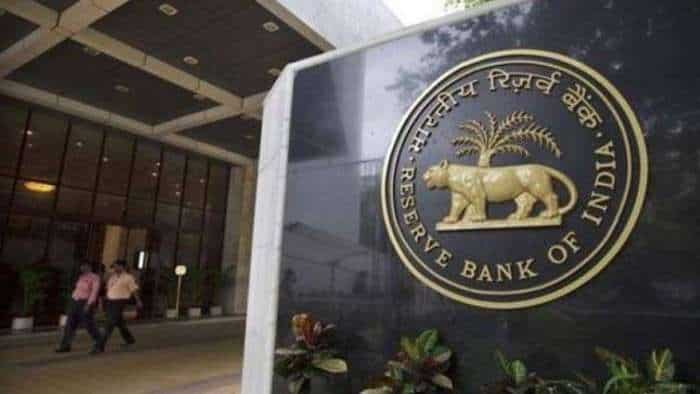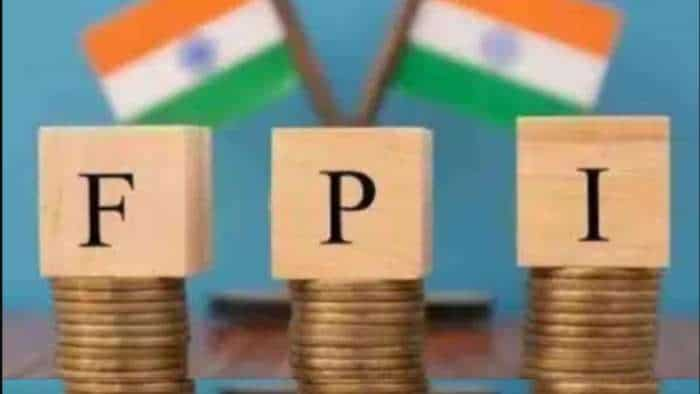Wealth Guide: Anguished with tax filing work? Here are 10 strategies for meticulous tax planning in FY23!
In India, as you start working and earning, tax planning becomes an important area to take care of.

In India, as you start working and earning, tax planning becomes an important area to take care of. While it is true that paying taxes is inevitable, with proper and advanced tax planning for the year, one can pay less tax or get a greater rebate at the end of the year.
But the problem is that most people keep this task for the end of the financial year, and this appears to be a heavy and burdened process.
See Zee Business Live TV Streaming Below:
In India, tax planning structure and the investments are designed in such a way to make certain that people can accumulate funds to secure their and their families' financial future effectively while also contributing to the development of the nation.
From Equity Linked Saving Schemes (ELSS) to medical insurances, there are ample ways people can reach their individual goals of financial management while paying the necessary taxes to the government.
Against this backdrop, Vikas Singhania, CEO, TradeSmart highlights 10 ways one can plan tax-saving investments and avail various benefits and rebates attached to them:
1. Public Provident Fund:
The Public Provident Fund (PPF) is a government-based investment scheme that focuses on creating a retirement corpus. PPF helps employees plan for retirement by collecting small savings and providing some tax relief.
Under section 80C, PPF tax deduction up to INR 1.50 lakh can be claimed. This is a uniquely beneficial category where interest and maturity are both exempted from tax. It is important to note here that the investments made in the PPF account have a lock-in period of 15 years. However, depositors can withdraw from the existing PPF account or continue it for the next five years.
2. National Pension System:
National Pension System (NPS) is a flagship retirement planning scheme. Under NPS, both private and government sector employees can over the period build a strong corpus and generate a monthly income during the retirement period.
There are two different types of accounts in NPS: tier 1 and tier 2. While tier 1 comes under Section 80 CCD (1) and Section CCD (1B), the latter is a voluntary scheme.
In NPS, the minimum amount invested for tier 1 and tier 2 is INR 500 and INR 1000, respectively. In addition, NPS enables employees to get an idea of the equity markets.
3. Equity Linked Saving Scheme:
To be precise, Equity Linked Saving Scheme (ELSS) are tax-saving mutual funds. ELSS also has the lowest lock-in period of three years as compared to government-backed investments.
It is also crucial to note that equity linked ELSS provides tax relief under Section 80C while also providing opportunities to make lucrative investments in the stock market.
4. Tax Saving Fixed Deposits:
What is better than Fixed Deposits (FDs)? The answer is tax-saving FDs. On investments made in tax-saving FDs, depositors can get a higher rate of interest.
Also, people investing in tax-saving FDs are eligible for deduction under Section 80C with the maximum exemption of INR 1.50 lakh. But there's a small catch. Tax-saving FDs have a lock-in period of five years with no facility for premature withdrawal.
5. Life Insurance:
If you want to save tax while also planning for the protection of your family in the face of an uncertain eventuality, Life Insurance is the perfect bet. Both term or life and Unit Linked Insurance Plans offer remarkable tax benefits.
If you have Life Insurance, you are eligible for a maximum INR 1.50 lakhs deduction under section 80C. Moreover, in ULIP, the tax exemption is extended to a maximum number of INR 2.50 lakh.
6. Senior Citizens Saving Scheme:
The Senior Citizen Saving Scheme (SCSS) was introduced to support senior citizens over the age of 60 with a regular source of income.
At present, under section 80C, the maximum exemption set is INR 1.50 lakh with the present interest rate of 7.4%. The good news is SCSS allows people to make a premature withdrawal.
7. National Saving Certificate:
Another scheme by the government of India is National Saving Certificate (NSC). It is a fixed income scheme where investments can be made with a minimum amount of INR 100.
This scheme has an investment tenure of five years, and depositors have the option to claim the entire amount on maturity. Under Section 80C, a tax deduction can be claimed for the maximum amount of INR 1.50 lakh.
8. Sukanya Samriddhi Yojana:
In 2015, to secure the financial future of the girl child, the Indian government launched a scheme called Sukanya Samriddhi Yojana. If you are planning to support your daughter's education and marriage, investing in this scheme is a good idea.
Also, like most other schemes in this list, Sukanya Samriddhi Yojana also allows a maximum tax exemption of INR 1.50 lakh under section 80C.
9. Health Insurance Premium:
Under Section 80D of the Income Tax Act, one can get a tax exemption on Health Insurance Premium. The tax exemption on medical insurance can be claimed on regular health insurance and critical illness premiums.
A common man can avail a maximum tax deduction of INR 25,000 for the premium paid for self and his immediate family members. In case, the parents of the payer are over the age of 60 (senior citizens), then the exemption limit gets extended to INR 50,000 in a financial year.
10. Home Loan:
If you want to save taxes and acquire a physical asset simultaneously, then taking a Home Loan is the best option. Whether you take Home Loan individually or jointly, every person involved can claim for tax exemption.
Under Section 80C of the Indian Income Tax Act, a Home Loan payer can claim a maximum tax exemption of INR 1.50 lakh on the principal repayment amount. In addition, under Section 24, the payer/payers can claim a maximum deduction of INR 2 lakh on the interest paid.
In a nutshell
Taxes are a permanent and certain aspect of adult life. If a person plans taxes meticulously and well in advance, they can easily evade from paying high taxes while also saving under different schemes creating a varied portfolio.
Be smarter and financially secure by investing in one or more of the aforementioned schemes and plan your tax saving instruments well in time to avoid hefty deductions from salaried income.
(Disclaimer: The views/suggestions/advice expressed here in this article is solely by investment experts. Zee Business suggests its readers to consult with their investment advisers before making any financial decision.)
Get Latest Business News, Stock Market Updates and Videos; Check your tax outgo through Income Tax Calculator and save money through our Personal Finance coverage. Check Business Breaking News Live on Zee Business Twitter and Facebook. Subscribe on YouTube.
RECOMMENDED STORIES
10:52 AM IST











 Hidden charges on SBI ATM cards: Is your money disappearing quietly?
Hidden charges on SBI ATM cards: Is your money disappearing quietly? Latest personal loan interest rates for SBI, PNB, Bank of Baroda, HDFC bank and ICICI bank
Latest personal loan interest rates for SBI, PNB, Bank of Baroda, HDFC bank and ICICI bank 8 post office investment schemes that offer over 7% guaranteed return
8 post office investment schemes that offer over 7% guaranteed return Millennials turning towards new-age investment instrument fractional investing: Report
Millennials turning towards new-age investment instrument fractional investing: Report  Income Tax: How are e-filing and e-payment of taxes different? Know details here
Income Tax: How are e-filing and e-payment of taxes different? Know details here